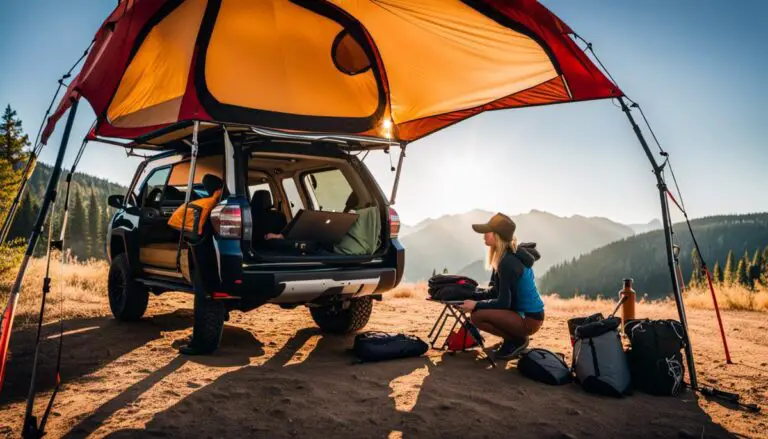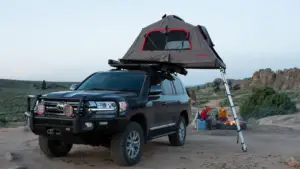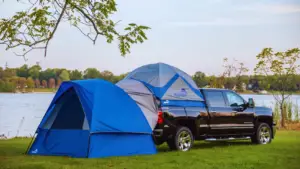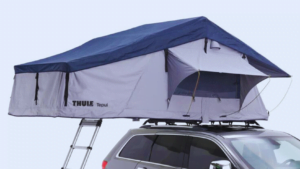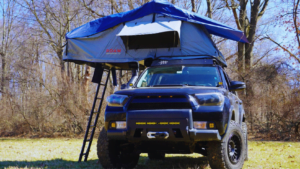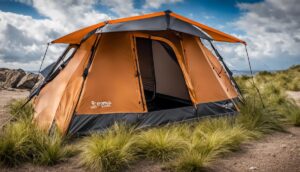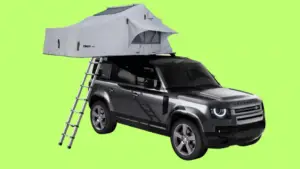Embracing the great outdoors with a trusted 4Runner as your adventure partner can be an unforgettable experience. Being prepared is key to a successful and enjoyable camping adventure. Whether it’s selecting the right tent for your 4Runner, packing essentials efficiently, or paying due diligence in planning your campsite location, each step contributes significantly towards creating a memorable outdoor experience. This guide will provide you with essential 4Runner tent camping tips that are indispensable for outdoor enthusiasts looking to fully enjoy their 4Runner camping escapades.
Selecting the Right Tent
Choose the Perfect Tent for Your 4Runner
To embark on your 4Runner camping adventure, the first and foremost obligation is to select the right tent. It’s crucial to remember that not all tents are equally created – some are designed exclusively to easily mount onto a 4Runner’s roof rack. These roof-top tents provide an elevated, secure sleeping area that keeps campers away from ground-level unwanted pests as well as variable, often inconvenient terrain. One major advantage of a roof-top tent is enjoying a panoramic view of your camping surroundings right from your bed!
Consider the Weather Conditions
While choosing a tent, you should factor in climatic variables too. For instance, if you’re camping during the hot summer nights, the tent must offer adequate ventilation for your comfort. Compact and stuffy tents can make the experience unbearable and exhausting.
Don’t Forget the Rainfly
If you anticipate wet weather, ensure your chosen tent brings an included rainfly. A rainfly is, in essence, an additional water-resistant cover to place over your tent in case of rain or dew. It’ll keep you dry during unexpected showers and also provide an extra layer of warmth on chillier nights.
Picking the Right Tent Size
The size of the tent is another vital factor. Ensure the tent is spacious enough to accommodate all your fellow campers without feeling cramped. A slight miscalculation in sizing may result in an unpleasant, uncomfortable camping experience.
Remember that choosing the right tent for your 4Runner camping adventure is all about durability, comfort, and adaptability. Select one that fits your needs to ensure a smooth and enjoyable excursion. No matter what the challenge might be, your 4Runner, paired with the perfect tent, is ready to tackle it head-on!
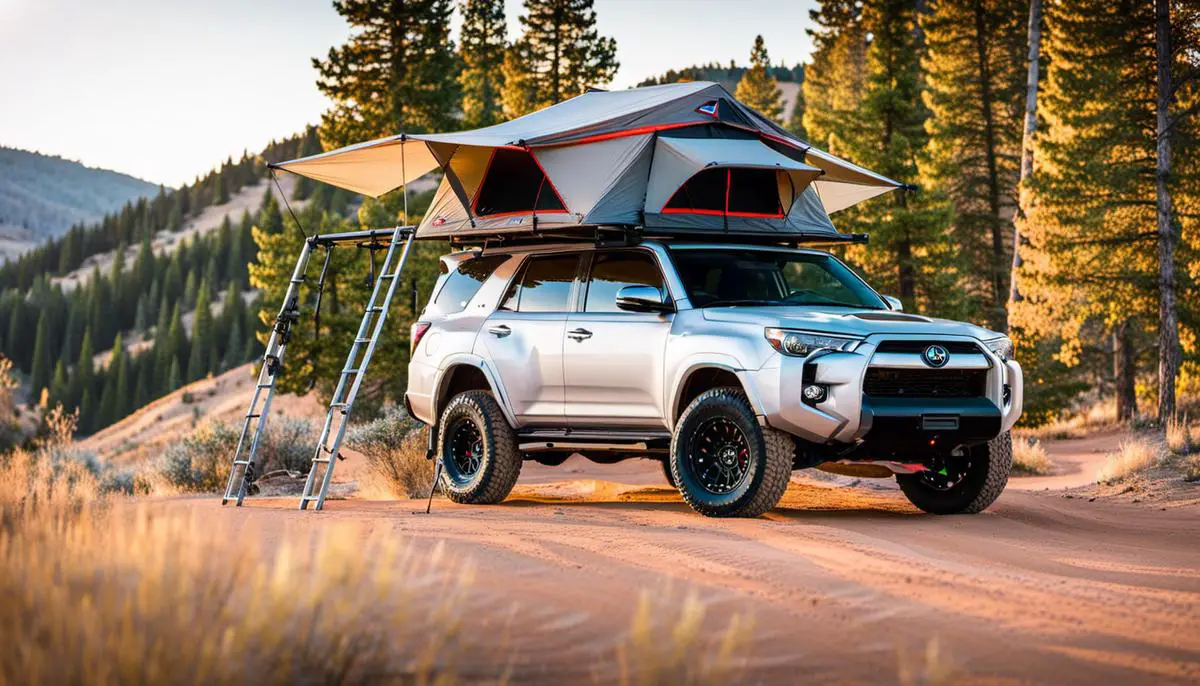
Packing Essentials
Be a Smart Packer
When setting out for a camping trip in your 4Runner, the first thing to remember is to pack smart. The aim should be to avoid carrying unnecessary items with you that might consume valuable space and clutter up your vehicle needlessly. Focus on essentials and items which are compact and easy to carry.
The Basics of Camping
Your basic packing list should ideally include essentials such as a sleeping bag, pillow, flashlight, multi-tool, and camping chair. These are items that will ensure your essential comfort and safety during your trip.
Maximize Your Space
4Runner vehicles are known for their excellent storage capabilities, but that doesn’t mean you should overload your vehicle. To maximize your 4Runner’s space and keep your stuff well-organized, you might want to consider packing compressible pillows and collapsible chairs. These items are perfect for camping and can be packed into small spaces, freeing up room for other essentials.
Invest in High-Quality Gear
Remember, the quality of your outdoor gear can significantly impact your camping experience. Ensure you invest in durably crafted items that can withstand the rugged outdoors. High-quality gear might seem pricey initially, but it pays for itself in the long run.
Prepare for the Unexpected
When going for outdoor camping, always be prepared for sudden weather changes or any unexpected situations. So, pack a first-aid kit, some quick dry clothing, an extra blanket, waterproof matches or a lighter, and some extra food and water.
Check Your Gear Before You Go
Before embarking on your camping trip, ensure to check all your camping gear. It would be frustrating to find out upon arrival that your tent has a rip, your multi-tool is missing some features, or your sleeping bag isn’t as warm as you thought it would be. Do a mock run of setting up your tent and other equipment to be sure everything is in working condition.
Travel Light and Enjoy the Adventure
Remember, the charm of camping is in its simplicity. The lighter you travel, the more you’ll be able to soak up the great outdoors. Strive to make your camping experience as comfortable and enjoyable as possible by correctly packing your 4Runner with only the most essential gear. A well-packed vehicle can go a long way in boosting your overall camping experience.
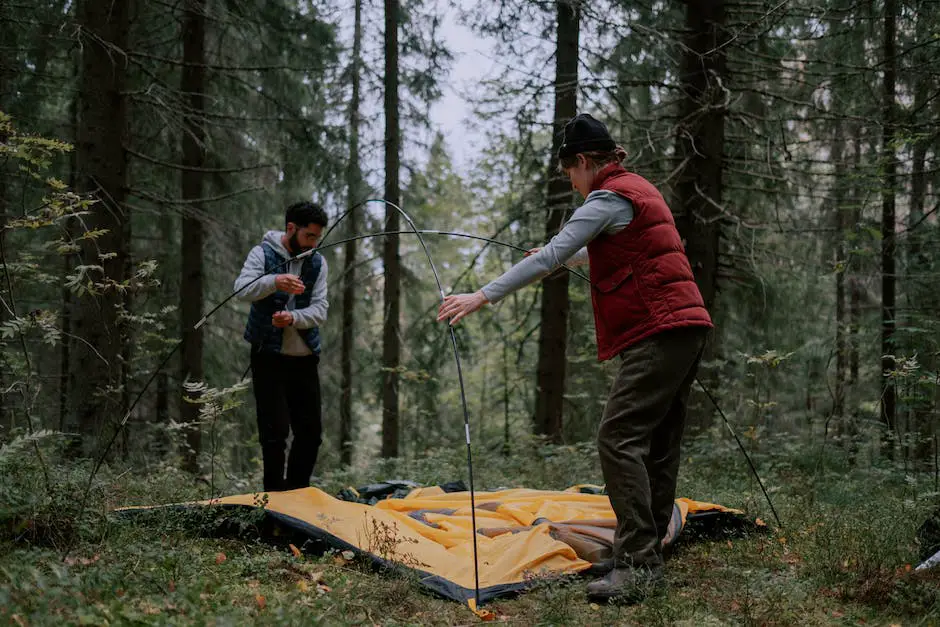
Food Storage
Food Storage Importance
Heading out for a camping adventure in your 4Runner? It’s crucial to plan your food storage for optimal freshness while conserving space in your vehicle. One of the critical aspects of planning a camping trip is ensuring all your food is stored properly. It protects it from spoilage and also guarantees you have enough nutritious and filling meals to sustain you during your fun journey.
Invest in Top-Notch Coolers
Investing in a high-quality cooler can be a game-changer for camping enthusiasts. The right cooler will maintain the necessary cold temperatures to keep your food fresh and your drinks chilled. Look for one with good insulation that can retain ice for several days, accommodating the length of your adventure.
Freezing Water Bottles for Extended Cooling
Freezing water bottles before your trip can provide an efficient way to keep the cooler temperature down for an extended time. As they thaw, you will also have extra drinking water on hand – a practical benefit when water resources are scarce.
Keeping Wildlife in Mind
When camping, it’s critical to keep your food stored in such a way that it won’t attract wildlife to your camping area. Always store food in sealed containers and never leave it unattended or out overnight. Many campgrounds have lockable food storage boxes you can use. If those aren’t available, keep food tightly packed and stored in your 4Runner.
Proper Storing to Maximize Food Shelf-life
Ensure your food types are properly separated in your cooler. Keep raw meats deeply packed to avoid cross-contamination. Fruits, veggies, and other perishables should be kept in separate containers. Consider preparing and freezing some meals ahead of time. Not only does this make trip meal prep easier, but frozen meal packs in your cooler can extend its cooling capacity.
Plan Your Meal Schedule
To help you plan your cooler storage, consider scheduling your meals. Plan to consume perishable items first, while they’re still fresh. Save longer-lasting food items for later in the trip.
Rationing Water Supply
While water takes up significant cooler space, it’s necessary for both hydration and food prep. To ensure your water supply lasts, consider investing in a separate water storage container. This will make your water supply easier to use, protect it from contamination, and free up valuable cooler space for food storage.
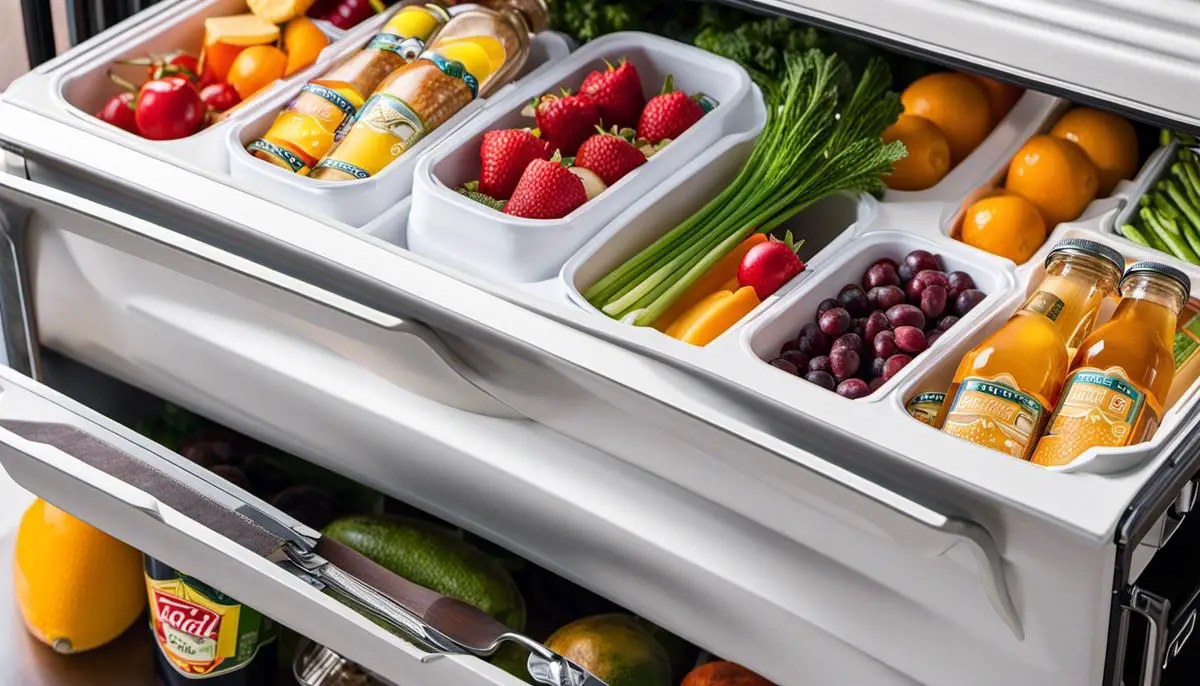
Planning Your Campsite
Research Your Campground Thoroughly
As an outdoor enthusiast planning to go camping with your 4Runner, the first tip is to thoroughly research your campground before you hit the road. Investigate what amenities are available such as water, restrooms, dump stations, and potential power sources. Learn about any unique rules and regulations of the campground like quiet hours, fire restrictions, and pet policies.
Identify a Suitable Spot
Finding the perfect spot to set up your 4Runner and rooftop tent can significantly enhance your overall camping experience. A flat, level piece of ground is ideal which can provide stability when you park your vehicle and set up your tent.
Optimal Distance from Amenities
Strike a balance between proximity to amenities and privacy. While it’s important to be relatively close to bathroom facilities or the park’s registration center for easy access, camping right next to these locations can be noisy and interruptive to the serenity of the great outdoors.
Select a Safe Area
Think about safety when selecting your campsite. Areas far from heavy traffic are ideal to keep your campground safe and peaceful. Also, always maintain a safe distance from bodies of water, especially during rainy seasons when water levels can rise rapidly.
Look for Natural Shade
During warm seasons, choose a spot with natural shade to help regulate the temperature during the day. Treed areas are excellent for this but be aware of “widow-makers,” dead trees or branches that could fall and cause injury.
Prepare for Various Weather Conditions
Observing the terrain can give clues about how well the site will fare in different types of weather. If you’re camping in a rainy season, do not set up your camp at the bottom of a hill where water will accumulate. Ideally, set up your tent on slightly raised ground.
Respect Your Surroundings
Bear in mind the principles of Leave No Trace. This includes camping on durable surfaces, respecting wildlife, and being considerate of other visitors. The beauty of nature is a shared asset, and it’s every camper’s job to ensure it remains pristine for future generations.
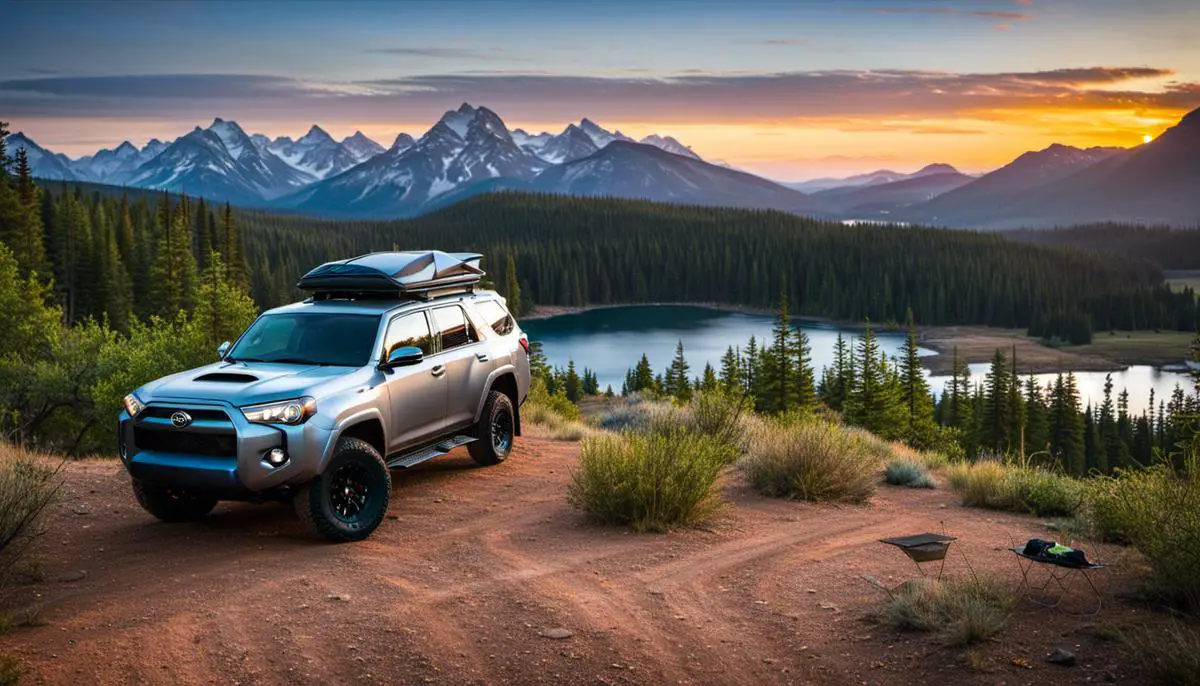
Tool and Repair Kits
Master the Basics: Carry Essential Tool Kits
Packing a basic, but comprehensive, tool kit should be one of the first items on your camping checklist. This tool kit does not need to be overly robust. Instead, essentials such as screwdrivers, pliers, a wrench, a hammer, and utility knife should suffice. Besides aiding small vehicle repairs, these tools can also come in handy when fixing camping gear, food preparation and even in simple tasks like tent assembly. Some multi-tools are specifically designed for camping, encompassing many necessary tools in one compact device, ideal for minimizing the weight without compromising helpfulness.
Don’t Be Caught Unprepared: Tire Repair Kit is a Must
Venturing off-road in your 4Runner is an integral part of the camping experience. However, being isolated and far from professional help means you must be prepared to deal with unexpected challenges – and one of the most common issues is tire damage. A tire repair kit is not only a just-in-case item, but a necessity when traveling off the beaten path. Therefore, it’s essential to carry a tire repair kit that includes tire plugs, patches, a tire plugger, and a tire reamer.
A Piece of Advice: Learn Beforehand
Before heading out on your adventure, learning how to use these tools and repair kits is crucial. Run through some common problems that you might encounter, such as a flat tire or a broken camping gear part, and practice using your tools to fix these issues. There are plenty of resources available, from online tutorials to hands-on classes, which can give you the skills and confidence needed to handle any unexpected situations.
Play it Safe: Replace and Maintain Your Tools
Lastly, it’s important to regularly inspect and maintain your tools to ensure they’re in optimal condition. Always check if the tools have any damage, or if they’re too worn out from extensive use, before each camping trip. Replacing damaged or old tools can save you from unwanted surprises and time-consuming repairs during your outdoor adventure. After all, high-quality, well-maintained tools can mean the difference between a minor hiccup and a trip-ruining incident.
Remember, a prudent camper prepares for the trip long before leaving their driveway. With these tips in mind, you can ensure that your 4Runner camping adventure is not only enjoyable, but also safe and trouble-free.
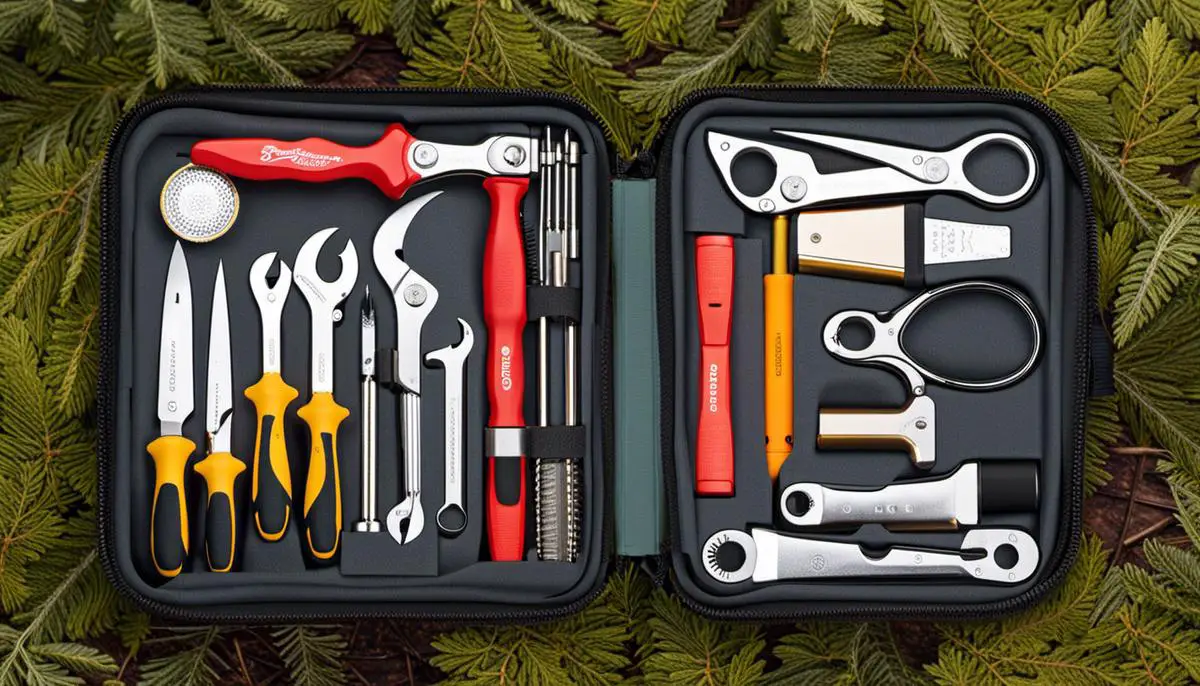
Safety Measures
Safety: Your first priority
Get ready for tent camping with your 4Runner by prioritizing safety. This means packing essential items including a first aid kit, maps, and a compass. It is ideal to always prepare for worst-case scenarios, especially when camping in remote locations. Altitude sickness, unexpected injuries, or simply losing your way are all potential hazards that a well-stocked first aid kit and navigational tools can help mitigate.
When planning your adventure, choose to camp in areas that are known for being safe and have adequate facilities. This would ideally include places with decent cell reception. However, if you’re a die-hard outdoor enthusiast who wants to venture into more isolated spots, consider investing in items such as a satellite phone or a location beacon. These tools can be indispensable in the event of an emergency, where cell phone service might be unreliable or non-existent.
Beyond gear and gadgets, good old-fashioned common sense goes a long way. It’s always smart to inform a trusted person about your travel plans before you hit the road. Let them know where you’ll be camping, what your itinerary looks like, and when you plan on returning. This way, if something does go awry and you’re not back when expected, they can alert the appropriate authorities to check on your well-being. This is an easy step to take but is often overlooked. Don’t make that mistake, because it could be lifesaving.

Photo by purzlbaum on Unsplash
Leave No Trace
Camping in a 4Runner
allows you to experience the outdoors in a new, unique way, but always remember the importance of leaving no trace. As an outdoor enthusiast, it’s your duty to respect the environment you choose to spend your time in, ensuring it remains in pristine condition for future generations of campers.
Leaving Your Campsite
There are several ways you can leave your campsite just as you found it, or ideally, even better. Always carry garbage bags or reusable waste containers to collect your trash and other waste. This includes anything from food wrappers to toilet paper – if you bring it in, you take it out. Keep a little trash bag inside your 4Runner to make this task even more convenient and ensure you don’t unintentionally leave behind any litter.
Biodegradable Camping Soap
Biodegradable camping soap is another essential piece of kit for any 4Runner camping trip. Biodegradable soap will reduce your impact on the environment and limit the amount of non-natural substances that could potentially enter local ecosystems. However, just because it’s biodegradable doesn’t mean it should be used directly in rivers, streams, or other bodies of water.
Safe Distance from Water Sources
Maintaining a safe distance from water sources when washing dishes, bathing, or using biodegradable soap is another vital piece of the leave no trace puzzle. Try to perform these tasks at least 200 feet (about 60 steps) away from water sources – this prevents any soap, even biodegradable types, from entering the water and potentially disrupting the natural ecosystem. It also reduces the chance of contaminating water sources that may be relied upon by you, other campers, or local wildlife.
Preserving the Environment
By adhering to the principles of leaving no trace, you’re not only looking after the environment – you’re also ensuring that your 4Runner camping adventures can be enjoyed by many more outdoor enthusiasts for generations to come. As a responsible camper, leaving your campsite as you found it is an essential part of the whole experience.
Remember:
- Pack out what you pack in
- Use biodegradable products whenever possible
- Always keep a safe distance from water sources
These simple yet critical steps will help preserve the natural beauty that makes 4Runner camping such an appealing way to explore and enjoy the great outdoors.
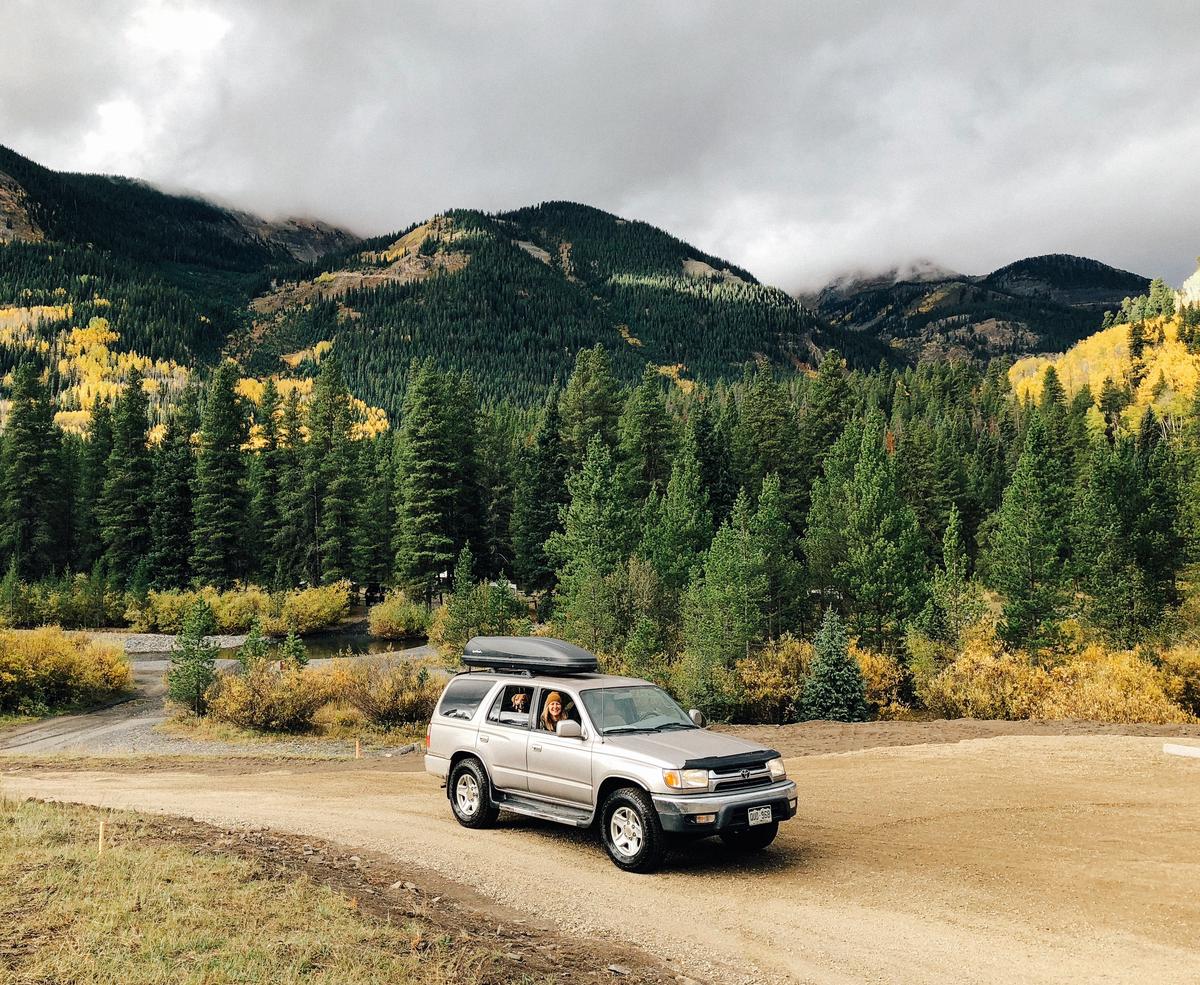
Photo by hollymandarich on Unsplash
Camping with your 4Runner is an excellent way to enjoy nature firsthand and make unforgettable memories, however, this experience hinges on your preparedness and respect for the environment. By employing these pivotal tent camping tips, you can ensure a comfortable, wholesome, and eco-friendly camping experience. Remember, each adventure is a learning experience that not only familiarizes you with the outdoors but also teaches you invaluable lessons regarding wildlife coexistence, environmental conservation, and survival skills. So no matter where your 4Runner takes you, remember to always respect nature, leave no trace, and keep camping!
4Runner Tent Camping: FAQs
Here are some frequently asked questions about 4Runner tent camping:
What is 4Runner tent camping?
4Runner tent camping is a type of camping where you use a tent that is specifically designed to attach to the back of a Toyota 4Runner SUV. This allows you to set up camp anywhere your 4Runner can go.
What are the benefits of 4Runner tent camping?
4Runner tent camping offers several benefits, including easy setup and teardown, protection from the elements, and the ability to camp in areas that may not be accessible to traditional camping equipment.
What kind of tent do I need for 4Runner camping?
There are several different types of tents that are designed for use with a 4Runner, including rooftop tents and tailgate tents. The type of tent you choose will depend on your personal preference and camping needs.
Do I need any special equipment for 4Runner tent camping?
In addition to a tent, you may also need some additional equipment, such as a sleeping bag, camping stove, and other camping gear. It’s important to make sure you have all the necessary equipment before embarking on a 4Runner camping trip.
